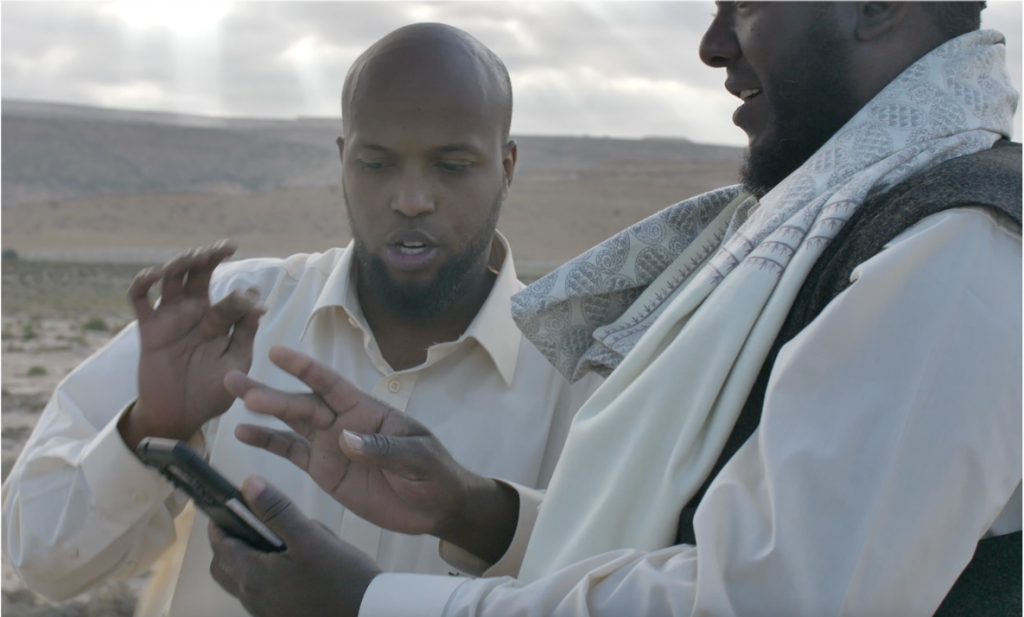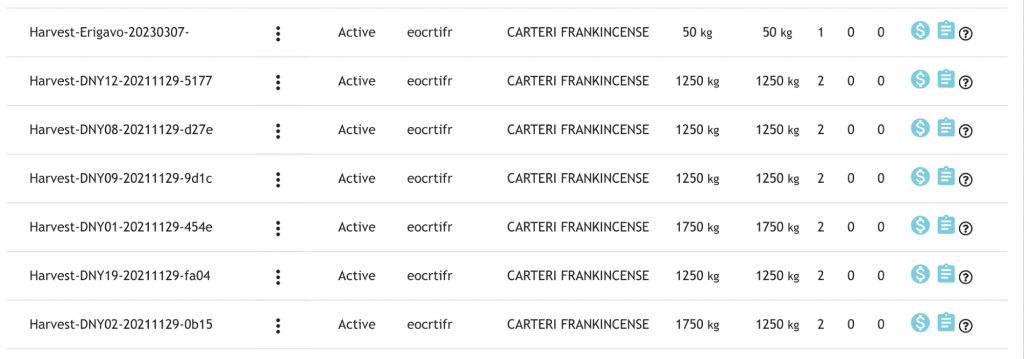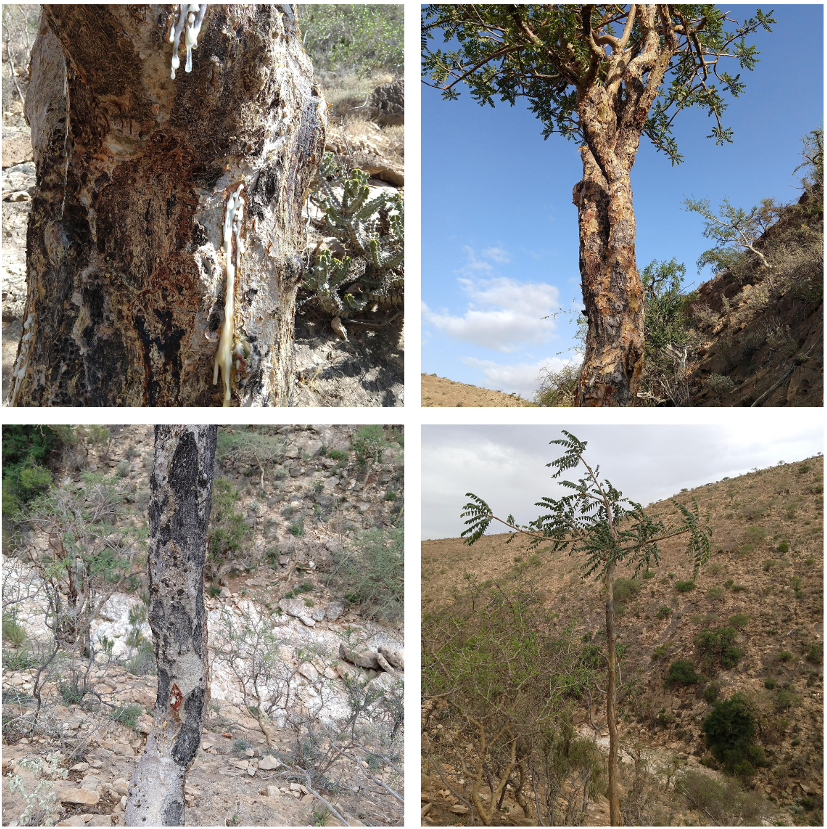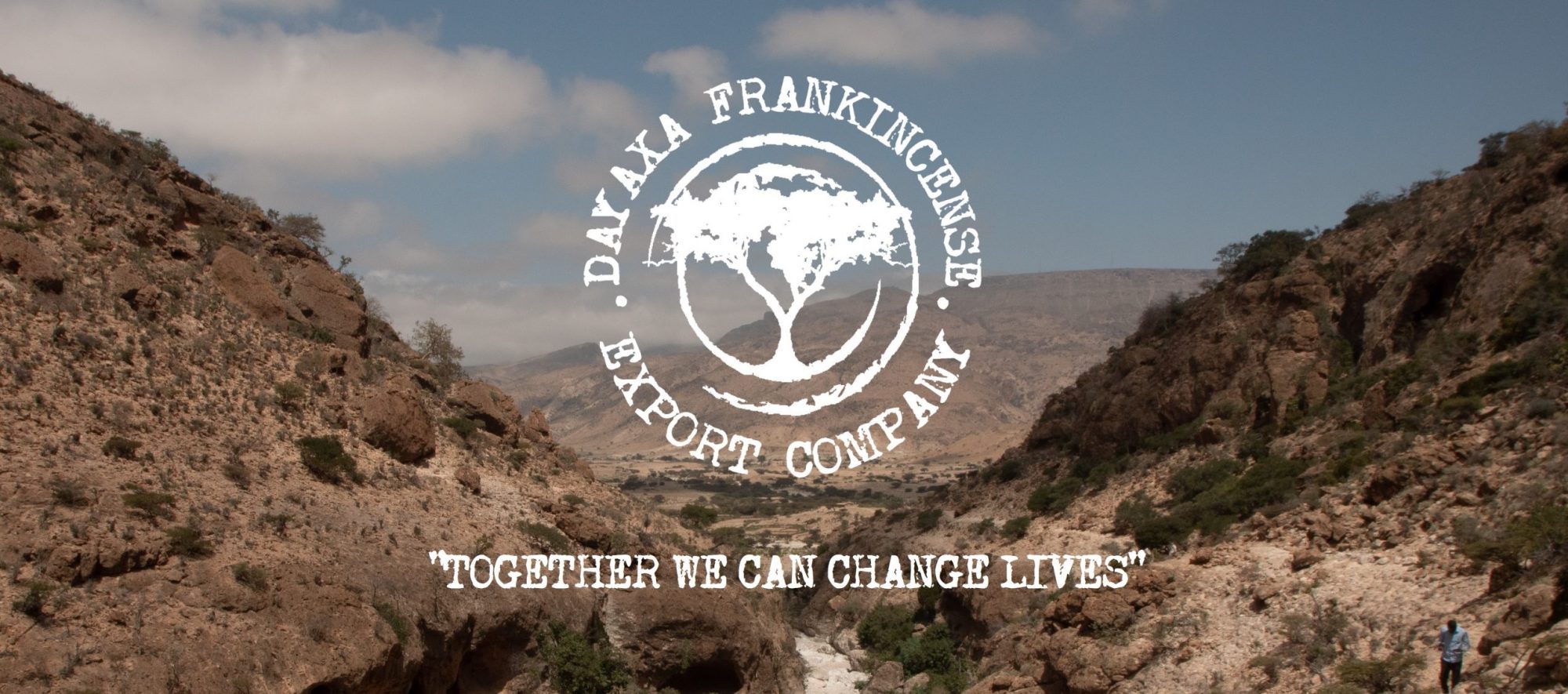“How do we create trust and transparency in a historically opaque supply chain?”
Our flagship initiative, in partnership with US-based FairSource Botanicals, is using a custom-designed, blockchain-enabled traceability app to document and track our supply chain activities. Blockchain has become something of a buzzword in supply chain tech circles, but at its core, it’s a flexible, scalable solution to prevent tampering with supply chain data.

How does Blockchain work? This video explains the overall concept well, without getting too technical:
Why is this important for frankincense?
As the video explains, Blockchain is, simply put, a technology to increase trust in data. If a claim is being made, such as that a batch of resin came from a particular place, you can check that this claim matches the data on the blockchain. The structure of the blockchain prevents suppliers from going back and editing, tampering with, or fabricating the data later; data have to be collected in real time, at the real location. Unlike traditional paper or digital records, it is difficult or impossible to manipulate blockchain records later.
What kinds of data can be captured?
The beauty of blockchain is that it can accommodate virtually any type of data–records, photographs, transactions, etc.
We focus on capturing a few critical types of data:
Transactions and Resin Origins
When we purchase resin from the harvesters, those transactions are done through one function of the blockchain app. We can record where we purchased the resin, from whom, which harvesting sites, and how much we’ve paid. We can then continue to use the app to log movements of those batches, from the villages, to warehouses, to port, during shipment, processing, and ultimately to the end client. This allows clients to identify the specific areas their consignments are coming from.

Registration of Harvesters
We register the harvesters and landowners in the villages where we source. This allows us to capture who is involved in the supply chain, their genders, and ages. In addition to being able to accurately identify who is involved to ensure fair payments and appropriate training, this allows us to screen for and prevent child labor or the involvement of blocked/sanctioned persons.
Digital Payments
Mobile money payment systems are prevalent in Somaliland, and we use these to make payments directly to harvesters. By doing so, we are able to show digital receipts proving that payments were made on time, in the correct amount, to the correct person. These receipts are attached to the transactions and demonstrate that each batch of resin or essential oil was fairly paid for.
Tree Health and Ecological Data
As part of the blockchain system, we have a custom tree health app that allows us to capture data on the harvesting practices, land management, and current health of the frankincense trees. Our traceability allows us to identify the specific sites where our resin originates, and to monitor those areas each season to ensure the trees are healthy and the collection is sustainable.

Carbon Capture
By tracking our resin and practices throughout the supply chain, we can calculate the amount of carbon required to produce each kilogram of resin or essential oil. We are currently working on integrating this functionality into the app, which will then allow us to achieve net zero emissions by offsetting the carbon we generate.
By tracking these data, we can ensure that our supply chain respects human rights, offers fair partnerships to communities, protects biodiversity, reduces environmental impacts, and de-risks the supply chain for our international partners.
